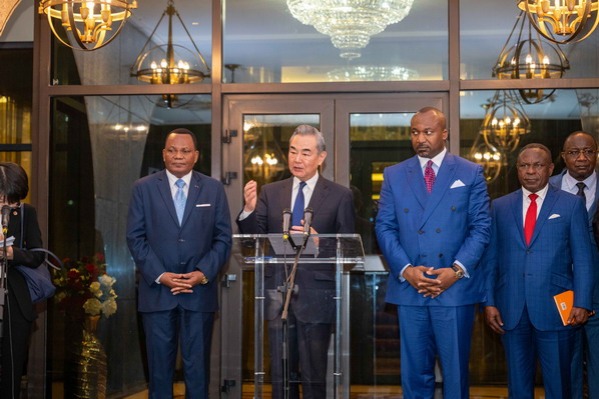What Chinese investors really have riding on pricey thoroughbreds

Betting on horses can pay off big. This writer once cashed a $2 bet for $90 at Belmont and promptly blew it all on a fancy bottle of wine at dinner.
Boxing a trifecta increases your odds of hitting it big, but the real gamblers in the world of thoroughbred racing are the high-rollers who spend millions on the horses themselves. That's the big gamble. Witness the record $16 million paid in 2006 for Green Monkey, who never finished better than third in a three-race career.
Spreading risk makes sense in such high-stakes dice rolls.
Last Saturday's Kentucky Derby winner, Justify, is such a going concern. The big red horse with what his jockey describes as "freakish" acceleration is owned by a consortium that includes WinStar Farm, Head of Plains Partners, Starlight Racing and the China Horse Club.
In fact, the "exclusive and secretive China Horse Club," as The New York Times reports, owns 10 of the most prominent horses that raced at Churchill Downs last week.
The China Horse Club has about 200 members who pay $1 million to join. It is run by Malaysian billionaire Teo Ah Khing, but members' names are kept confidential. The club has no Wikipedia page.
The Kentucky Derby purse was $2 million, with about $1.24 million going to Justify's team.
But what also comes with the win - as it does with every Derby winner - is the immediate speculation: Could this horse go on to win the Preakness and Belmont, the next two jewels of the Triple Crown winner?
Then comes the big payoff.
There are a few things in Justify's favor. His trainer, Bob Baffert, trained the last Triple Crown winner, American Pharoah in 2015.
Four of Baffert's previous Kentucky Derby winners went on to win the Preakness.
As far as omens goes, Justify also broke the so-called Apollo's Curse, becoming the first 3-year-old to win the Kentucky Derby without racing as a 2-year-old since Apollo in 1882.
Asked if he thought Justify was of the same caliber as American Pharoah, Baffert said yes without hesitation, citing his size, athleticism and intelligence. Justify is about 100 pounds heavier than Pharoah was at Derby time. Baffert compared him to LeBron James.
The day after the Derby, Baffert brought Justify out of his stall to give reporters and fans a look. He avoided Triple Crown talk.
"We won the toughest one, the most important one," he told the Lexington Herald-Leader. "Next he runs in the Preakness and after that we'll see. If I like the way he comes out of that, we'll take a shot in the Belmont. We're taking it one race at a time."
Three years ago, American Pharoah topped off his Triple Crown by coasting to an easy win in the prestigious Breeder's Cup. Shortly afterwards it was announced that the champion stallion's stud fees would be set at $200,000.
A typical stallion mates with 100 to 150 mares a year and his stud career begins at age 3 and goes into his 20s. Doing the math, American Pharoah - who earned $8.7 million in purse money in 11 races on the track - was set to earn his owners $20 million to $30 million a year for the next 20 years.
Even the stud fees for Pharoah's father, Pioneer of the Nile, more than doubled from $60,000 to $125,000 after his son won the Triple Crown.
So that's what's really at stake in the upcoming Preakness and Belmont stakes for investors like the China Horse Club, whoever they may be.
After American Pharoah won the Breeder's Cup in 2015, Baffert said, "It's going to be a tough act to follow. Hopefully somebody will drop another horse like this in my lap."
Looks like the China Horse Club may have done just that.
Contact the writer at [email protected]

































